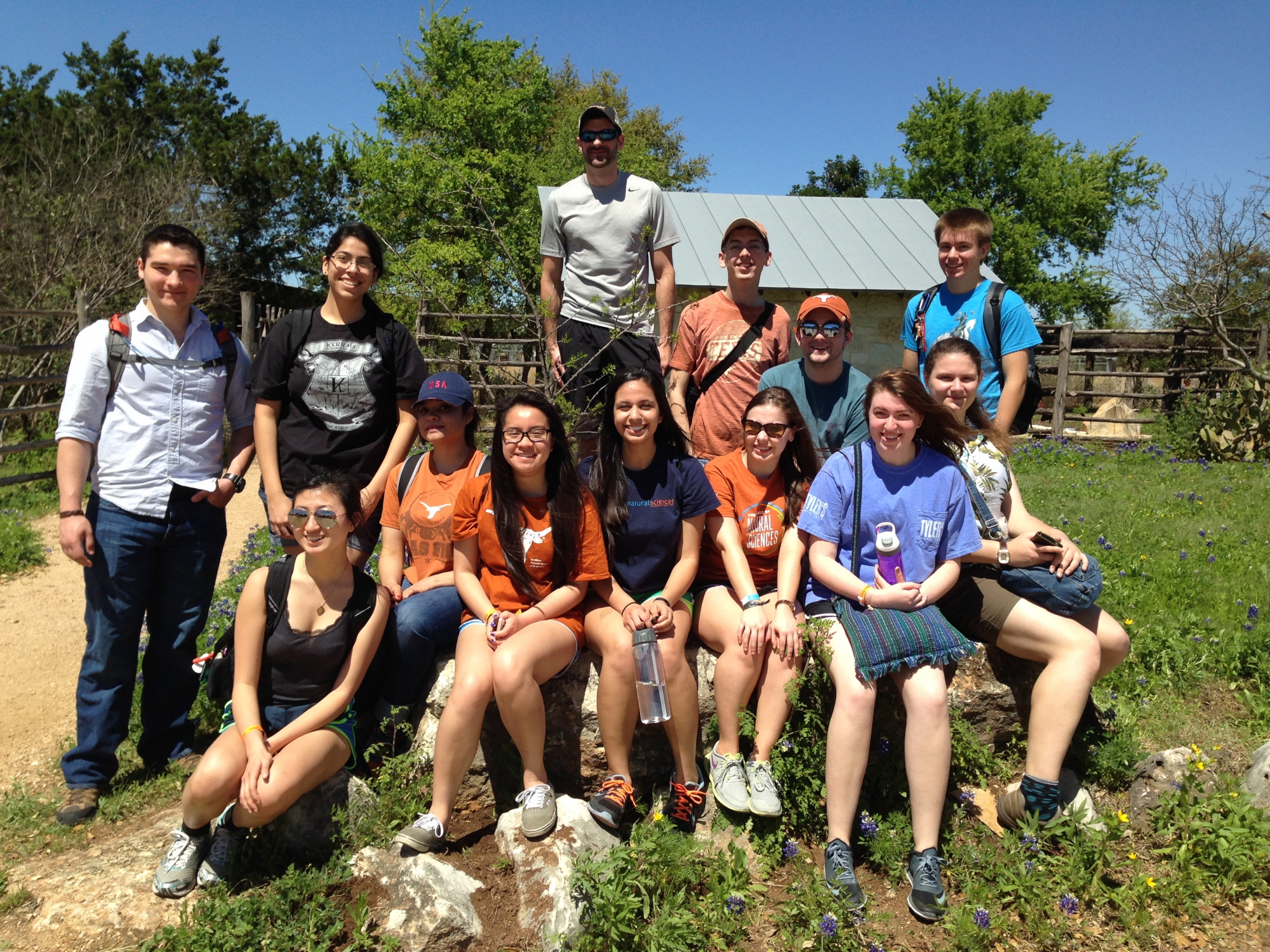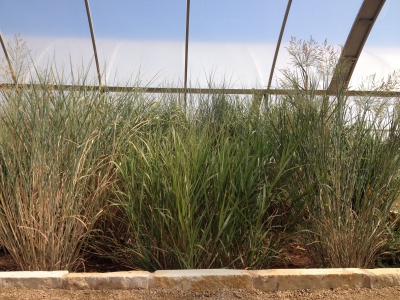 Course articles
Course articles
Freshman Research Initiative at the University of Texas
Biology of Biofuels course highlight on UT Front Page
Biology of Biofuels course highlight in the Daily Texan
BIOLOGY OF BIOFUELS: Intro to Integrative Plant Biology
Research educator and course contact: Dr. Brandon Campitelli
Overview
Global change, both environmental and political, is resulting in requirements for new, secure sources of liquid fuels to support transportation and other energy intensive technologies in the United States. Switchgrass is a native, perrenial grass species with potential for high productivity based on low inputs. This makes it a promising alternative source for biomass to be converted into fuel that would not directly compete with food crops like corn. In this stream, freshmen are given the opportunity to investigate the biology of Switchgrass - particularly how well it grows when subjected to forecasted climate conditions, i.e., less reliable rainfall and higher temperatures - using a variety of approaches that take them from the lab, to the greenhouse, and even into the field.
The Freshmen Research Initiative is a unique program that shuttles targeted freshmen through an intense research based experience. Our stream centers on the biology of the model biofuel crop, Switchgrass. However, much of the training and independent research that is carried out integrates concepts and techniques from several disciplines in plant biology, with a strong emphasis on genetics/genomics, physiology, ecology and evolution. A significant fraction of students that participate in our freshmen stream are invited to join the Juenger lab team and contribute to the broad spectrum of plant research we do.
Topics of study
Switchgrass genetics & genomics
- How do the favorable traits of Switchgrass for biofuel production - high yield, low input requirements, easily planted seed, few insect and disease problems, high drought tolerance - derive from heritible genetic variation?
- The answer to these questions will help rapidly improve biomass production and quality for biofuel production.
- Our stream makes use of the natural variation that exists in Switchgrass from accross the Unite States (upland vs lowland, mesic vs xeric) to demonstrate the importance of local adaptation, especially in consideration of important traits for biomass production.
- Students in our stream receive training in a variety of laboratory techniques (ethanol production, DNA extraction, PCR, gel electrophoresis), and often carry out independent projects that help advance the genomics end of research in the Juenger lab.
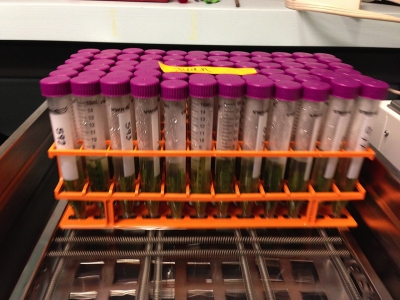
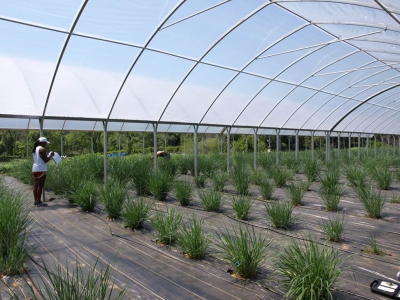
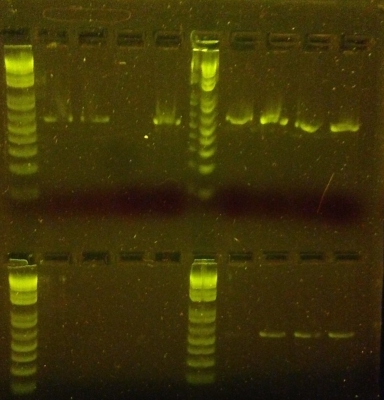
Switchgrass physiology
- Water limitation is a key environmental factor that can limit plant growth, and hence overall biomass production.
- Plants have evolved biological responses to drought to minimize damage and the risk of mortality through two main mechanisms:
- Tolerance responses help plants survive drought and are reversible when water becomes available, such as stomatal control of transpiration and cellular osmotic adjustment
- Avoidance responses allow for the completion of life-cycles or resource conservation before drought stress is experienced, such as fast growth and early reproduction.
- Our stream explores how different Switchgrass genotypes (collected from all over its range) respond to forecasted climate conditions (drought, temperature), and thenaims to employ genetic mapping techniques (e.g., QTL mapping) to understand the genetic architecture of any detected tolerance mechanisms.
- Students get hands-on experience using an assortment of leading edge equipment designed to measure plant physiological performance.
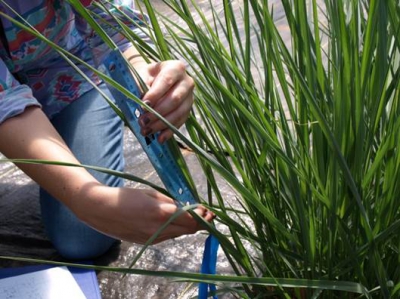
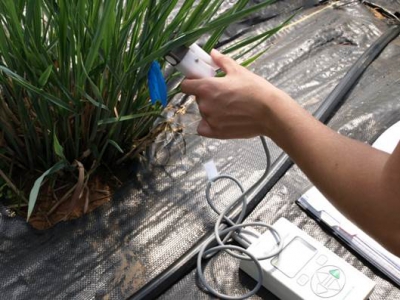
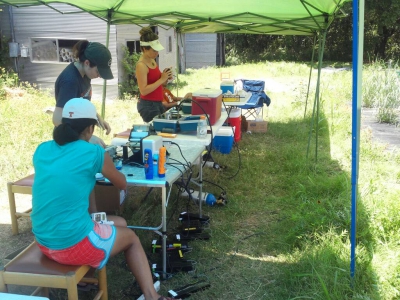
Switchgrass in the future
- Where should we focus our growing efforts for Switchgrass in the future?
- Answering this question requires not only knowledge of Switchgrass biology (physiological responses) and its interactions with the environment (which genotypes do best in a given set of climatic conditions), but also policy (what land will be used to cultivate Switchgrass, i.e., the food-fuel debate).
- Students in our stream get to interact directly with our collaborators from the USDA who work at the interface of Switchgrass biology, environment and policy to investigates these questions.
- In addition, students have the opportunity to visit field sites and help collect the phenotypic data that is ultimately fed through the predictive models that we are developing with our collaborators. Those with an affinity for computer programming can be introduced to some of the modelling techniques that are being implemented.
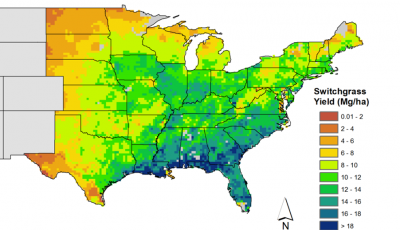
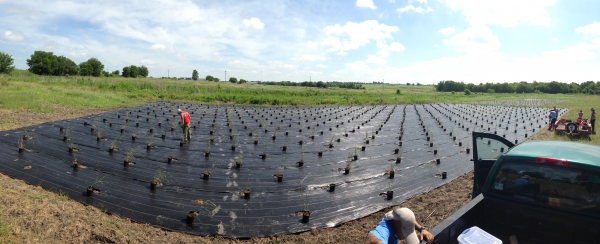
Plant evolutionary ecology
- Although our focus in the course centers on the biofuel candidate, Switchgrass, the Juenger lab is largely an integrative plant biology lab. As such, we offer several opportunities to study plant ecology and evolutionary biology.
- While much of this research is carried out in Switchgrass, and it's close relative Panicum hallii, we also do a lot of work with the lab model species Arabidopsis thaliana, and a model for cereal crops, Brachypodium distachyon
- Research with these model species spans genomics/transgenics to ecological experiments that explore plant competition, pathogen resistance, and environmental stress response
